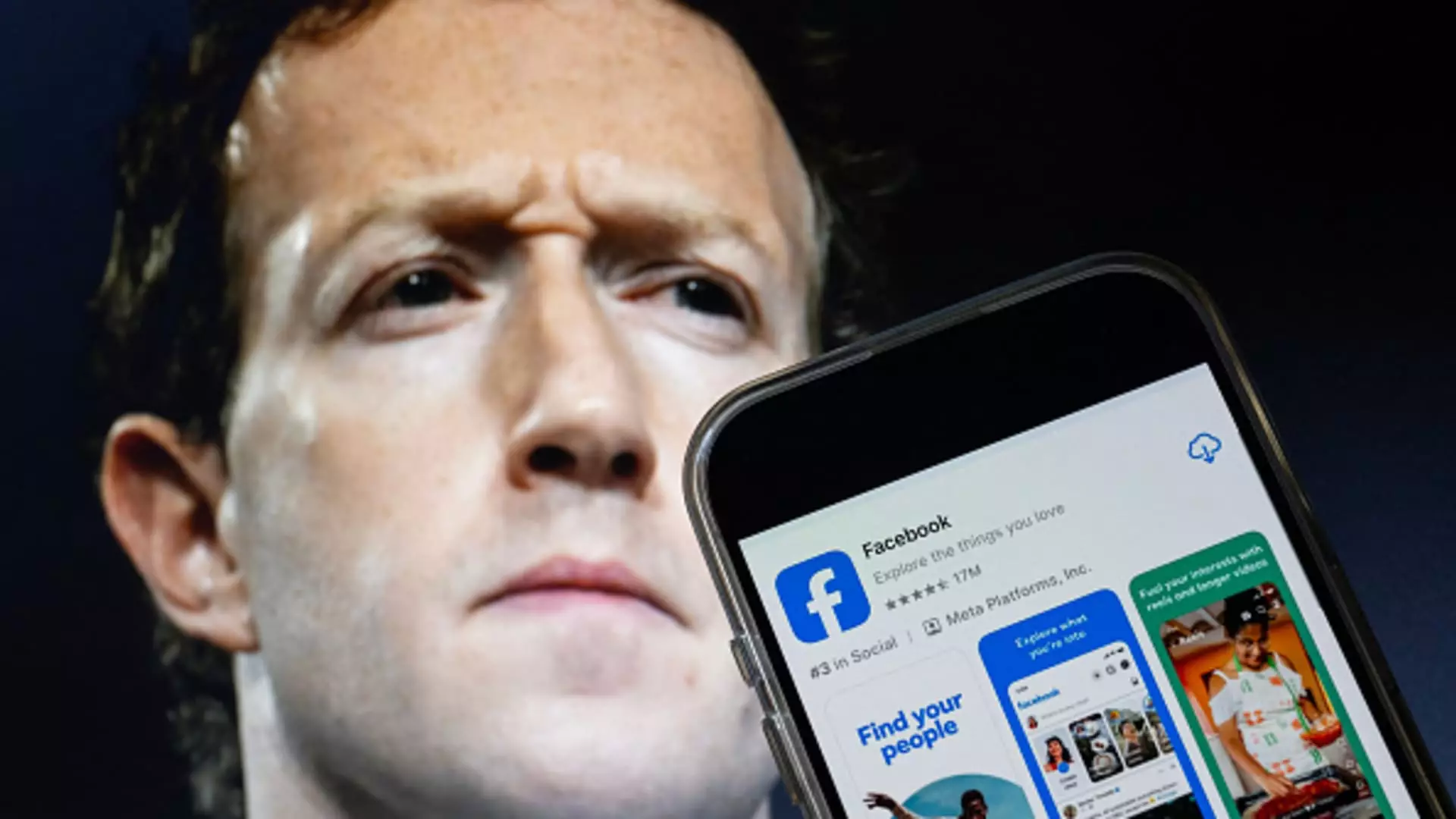Meta Platforms, the tech behemoth once celebrated for revolutionizing social networking, now finds itself amidst an intense legal skirmish with the U.S. Federal Trade Commission (FTC). The stakes couldn’t be higher; the outcome of this trial may lead to a significant divestiture of its prized assets, Instagram and WhatsApp. This isn’t just a courtroom drama; it’s a pivotal moment for the future of technology in America. The FTC’s assertions that Meta dominates the personal social networking market have triggered a backlash against perceived monopolistic behavior, raising questions about fairness, competition, and the overall integrity of the tech landscape.
Unlike some high-profile tech cases that flew under the radar, Meta’s conflict with the FTC directly ties to its expansive enterprise strategy. The FTC’s claims date back to their initial case filed in 2020, which initially faltered due to insufficient evidence. However, growth in Meta’s user base and its consolidation of social interactions in one ecosystem have reignited concerns over its dominance. This trial is not merely about proving market control; it’s about the essence of competition and how consumers experience digital interactions.
Competing Perspectives: Is It Competition or Monopoly?
The heart of the debate hinges on how the market is defined. While the FTC insists that Meta has cornered the specific domain of personal social networking, Meta’s defense contends that it competes against a broader array of rivals, from TikTok to Snapchat. Such competition exists and is vibrantly manifest; platforms vie for user time and loyalty in ways that evolve daily. Yet, this begs the question: does the existence of competitors like TikTok and YouTube absolve Meta of its monopolistic responsibilities?
The FTC argues that by acquiring Instagram and WhatsApp, Meta stifled competition rather than enhancing user experience or innovation. These acquisitions weren’t simply strategic; they were lifelines thrown to eliminate potential threats. The result, the FTC argues, was an ecosystem where alternatives to Meta’s core apps diminish, leaving users with little choice but to participate in a homogenized digital environment. This allegation strikes at the heart of free-market ideals, where diversity in choices is seen as a hallmark of healthy industry dynamics.
Legal Implications: An Evolving Landscape
The implications of this trial stretch far beyond the immediate fate of Meta. Legal experts affirm that this could redefine antitrust laws in the context of corporate acquisitions, especially within the tech industry. Prasad Krishnamurthy, a legal scholar, emphasizes the challenge the FTC faces in articulating how Meta’s conduct has caused measurable harm to competition and consumer choice. This complexity complicates crusades against behemoths like Meta, which thrive on the vast data collected from their expansive user bases.
It’s also critical to explore what “harm” means in today’s digitally driven society. Consumers often find value in convenience over safety or choice. A ruling against Meta could catalyze a cascade of similar investigations and lawsuits aimed at colossal tech enterprises, perhaps curbing innovation if not managed prudently. Rather than dismantling powerful companies, the aim should be to foster their accountability while promoting fair competition that benefits consumers.
The Political Landscape: Uncertain Waters Ahead
Adding another layer of complexity to the scenario is the evolving political backdrop. The recent change in FTC leadership, marked by the installation of Andrew Ferguson, casts shadows over the motives and strategies of the FTC. Concerns arise that a more lenient approach could ensue, possibly due to Zuckerberg’s prior engagements with the Trump administration. These dynamics fuel speculation that Meta might receive favorable treatment, undermining the magnitude of the FTC’s interests in promoting competition.
Legal experts express cautious optimism regarding Ferguson’s independence, suggesting he may remain aligned with existing staff efforts rather than capitulating to political pressures. However, the integration of politics into legal proceedings raises ethical questions. Should the integrity of antitrust enforcement hinge on fluctuating administrative whims? Good governance demands a steadfast commitment to level the playing field, irrespective of political affiliations.
Why This Matters for the Future of Tech
This trial represents a momentous clash between innovation and regulation, potentially setting profound precedents for the tech industry. If Meta faces unfavorable outcomes, it could energize antitrust scrutiny directed at other major corporations whose business models operate similarly. While it is crucial to hold big players accountable, we must also tread carefully to preserve the innovation that drives the tech industry.
The discourse surrounding Meta’s antitrust battle embodies broader societal conversations about data privacy, user consent, and the concentration of power within the digital realm. As these trials unfold, what is at stake transcends the fate of a single company. Our collective digital experience and the very norms of competition are delicately poised on the outcome, urging us to consider not just what we want from tech giants, but what we deserve as consumers in this evolving digital age.

